When I studied European Literature (Sussex, 1981), our only sources of criticism and commentary were lectures and the library. If you were studying an obscure text, there wasn’t much to go on. For example, for one assessment I compared versions of Troilus and Cressida. I found plenty about the Shakespeare play and lots on Chaucer’s Troilus and Criseyde, a few books about their source which was probably Boccacio‘s Il Filostrato, and one short chapter on a Scottish poet called Henryson. His narrative poem The Testament of Cresseid featured Cressida punished for her love affair by contracting leprosy. I took as gospel everything the critic said about Henryson, because who else was there to consult? And Henryson took a starring role in my essay, to gain me marks for originality.
Undergraduates often depend too much on second hand opinions partly because they respect more senior researchers (good) and partly because they lack confidence in their own views (bad). Thus, at feedback for my essay on Crime and Punishment, the eminent Professor Thorlby greeted me: “I didn’t know you were a lapsed Catholic.” I’d had no idea, dependent as I was on discussing the words of the only Russian critic I could find translated into comprehensible English, that was the impression I’d given. I thought my essay was contrasting individualism with social responsibility. (I did know enough to know I liked criticism to be rooted in a social and economic context as well as discussing language and style. So with one confused eye on the semiotics and structuralism then still shunned at Cambridge but a big deal at trendy Sussex, the critics I favoured tended to be Marxist, which also made them easier to read.)
As an exchange postgraduate in France, I had to teach Hamlet to students older and more qualified than myself. I fled back to England, to the Sussex library and in horror found over a dozen shelves in the “stacks”, of Hamlet criticism alone. How to sort out the brilliance from the dead wood? And how much worse this dilemma must be now. I just Googled “Hamlet – critical articles” and found 21,600,000 results.
Since that eye opening Sussex foundation, with more decades of reading and some writing of my own, I’m less blinded by academic credentials and more able to judge whether a critical study is telling me something new. One such is Jane Austen: The Secret Radical by Helena Kelly. Now Austen is an author I thought I knew well. But – “Forget the Jane Austen you think you know. Forget the biographies, forget the pretty adaptations. Ignore the banknote. Read Jane’s novels,” says Kelly (p.311). Well, I’ve done that, several times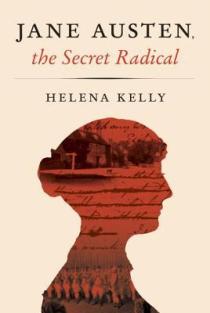 . I studied Persuasion for A level (Don’t knock A levels. A good teacher leading on a great book, covering the solid old style A level syllabus, can provide a key to thinking about literature that’s equal to anything on Google or mouldering in the library stacks.) My Economic History A level covered the Agricultural and Industrial Revolutions in the UK, and I studied the French Revolution at university, as well as Mary Wollstonecraft, Marx, and Freud. So I was prepared for much of Kelly’s thinking, and I’d never dismissed Austen’s novels as pretty drawing room dramas. I agree with Kelly that if you “…understand what serious subject marriage was then…all of a sudden courtship plots start to seem like a more suitable vehicle for discussing other serious things.” (p.31) Even so – take a deep breath.
. I studied Persuasion for A level (Don’t knock A levels. A good teacher leading on a great book, covering the solid old style A level syllabus, can provide a key to thinking about literature that’s equal to anything on Google or mouldering in the library stacks.) My Economic History A level covered the Agricultural and Industrial Revolutions in the UK, and I studied the French Revolution at university, as well as Mary Wollstonecraft, Marx, and Freud. So I was prepared for much of Kelly’s thinking, and I’d never dismissed Austen’s novels as pretty drawing room dramas. I agree with Kelly that if you “…understand what serious subject marriage was then…all of a sudden courtship plots start to seem like a more suitable vehicle for discussing other serious things.” (p.31) Even so – take a deep breath.
Northanger Abbey, is not as I thought about a young girl carried away into silly fantasies by reading Gothic novels.  Kelly points out, in this novel about reading, how little reading actually gets done. But there does seem to be female masturbation, thinly veiled as unlocking a door: “Jane’s society viewed it as common knowledge that girls, as well as boys, indulged in the ‘secret and destructive vice’.” (p.66) There are a number of footnotes and a short bibliography, but this particular assertion is not backed up though Freud must be drooling in his grave. I found the claims that death through sex and childbirth was a major theme, both overt and coded, more convincingly argued through the sad statistics of social history.
Kelly points out, in this novel about reading, how little reading actually gets done. But there does seem to be female masturbation, thinly veiled as unlocking a door: “Jane’s society viewed it as common knowledge that girls, as well as boys, indulged in the ‘secret and destructive vice’.” (p.66) There are a number of footnotes and a short bibliography, but this particular assertion is not backed up though Freud must be drooling in his grave. I found the claims that death through sex and childbirth was a major theme, both overt and coded, more convincingly argued through the sad statistics of social history.
Sense and Sensibility is, to Kelly, about “brass” (money). She points out the imagery of 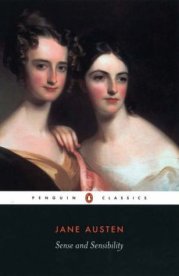 metals, money and jewellery, and how this novel, like Pride and Prejudice, highlights unfair inheritance laws and primogeniture. The money references are given so precisely in Sense and Sensibility, the 21st century reader can calculate the exact incomes of various grades of clergy, army personnel, landowners and their dependents, and understand how patronage makes or ruins them. But here’s Freud again: Kelly highlights sexual symbolism, hinting at abuse, and her delving into the moral character of even apparently worthy suitors raise few hopes for the marriages contracted. If Kelly’s reading is correct, Austen is cynically pessimistic about the future for the Dashwood brides.
metals, money and jewellery, and how this novel, like Pride and Prejudice, highlights unfair inheritance laws and primogeniture. The money references are given so precisely in Sense and Sensibility, the 21st century reader can calculate the exact incomes of various grades of clergy, army personnel, landowners and their dependents, and understand how patronage makes or ruins them. But here’s Freud again: Kelly highlights sexual symbolism, hinting at abuse, and her delving into the moral character of even apparently worthy suitors raise few hopes for the marriages contracted. If Kelly’s reading is correct, Austen is cynically pessimistic about the future for the Dashwood brides.
Most of us are most familiar with Pride and Prejudice. But here’s a less chintzy angle. Kelly is into her stride now, and highlights 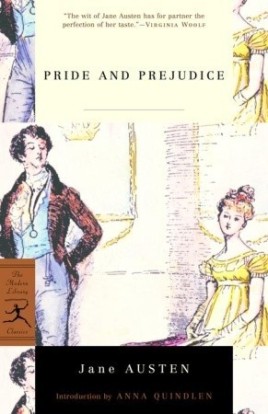
how “the presence of the militia in the novel …introduces layer upon layer of anxiety…Invasions..naval mutinies…food riots…They’re in the background, but they’re there.” (p 128). She situates the novel amid precise historical events through indicators like the style of Elizabeth’s petticoat – not a petticoat at all but a fashion that was definitely old fashioned by the mid 1790s. She also explains the extra resonance in the word “prejudice” for contemporary readers – a strength of Kelly’s book is her ability to decode references that would have been much more obvious to Austen’s immediate audience than they are to us. One thing we’d have to be blind to miss is the criticism of the clergy, represented by the absurd Mr Collins, but Kelly is none too impressed by Mr Darcy’s aristocrat either, even after the proud and prejudiced scales have fallen from his eyes. Whoops – here’s another marriage auguring well but, Kelly implies, too much of a fairy tale to ring true.
It’s always gratifying when an expert echoes one’s own thoughts. For Kelly as for me, Mansfield Park was Austen’s most radical and daring novel, and she is moving on Austen’s disappointment at the lack of reviews. Perhaps, says Kelly – the word perhaps appears often in JA:The Secret Radical: not all Kelly’s ideas are fully substantiated – this isn’t surprising. Mansfield Park is a barely coded attack on slavery. Although the 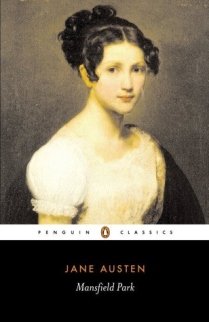 abolitionist cause had much public support by Austen’s time, much wealth was still enmeshed with slavery, from her own family to great landowners and the Church of England. It reflected well on the enlightened British to support abolishing slavery in the Caribbean, but at home nobody wanted to see their standard of living fall, or run short of sugar. Kelly finds child abuse and sadism in the novel, as well as fortunes built on slavery and ecclesiastical hypocrisy. “(Mansfield Park) is filled with infidelities, not-so-genteel-poverty, with bullying and threats of violence.” (p. 168). She points out how the names Mansfield, Norris, Madeira (as in wine) and Moor Park (the type of apricot tree planted at Mansfield Parsonage) would have resonated with contemporary readers, who’d recognise the names of players in the slavery debate; she counts many instances of the words “plantation, slave, chains”. She shows how daring it was for a clergyman’s daughter to write a novel so critical of the Church. No wonder it wasn’t reviewed.
abolitionist cause had much public support by Austen’s time, much wealth was still enmeshed with slavery, from her own family to great landowners and the Church of England. It reflected well on the enlightened British to support abolishing slavery in the Caribbean, but at home nobody wanted to see their standard of living fall, or run short of sugar. Kelly finds child abuse and sadism in the novel, as well as fortunes built on slavery and ecclesiastical hypocrisy. “(Mansfield Park) is filled with infidelities, not-so-genteel-poverty, with bullying and threats of violence.” (p. 168). She points out how the names Mansfield, Norris, Madeira (as in wine) and Moor Park (the type of apricot tree planted at Mansfield Parsonage) would have resonated with contemporary readers, who’d recognise the names of players in the slavery debate; she counts many instances of the words “plantation, slave, chains”. She shows how daring it was for a clergyman’s daughter to write a novel so critical of the Church. No wonder it wasn’t reviewed.
I said in my previous post on Jane Austen that I found the story and character of Emma least interesting of all the novels. Kelly len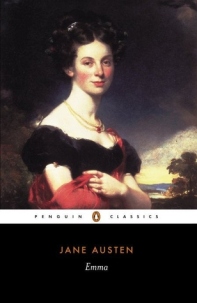 ds more meaning to the story, explaining how the plot reflects the enclosures movement. “Enclosing” covered any kind of fencing, walling, hedging or barring access to common and waste ground. It was at its height when Emma was written. It challenged the poor, who had previously been able to supplement their meagre incomes grazing livestock, growing vegetables, gathering firewood and foraging on such land. Without access, the numbers of destitute people swelled, and there was high population growth too. Kelly shows the landscape of Emma emphasising enclosures, “respectable” people reduced to begging for parish relief, gypsies forced off their traditional sites, and the better off feeling vulnerable too. Mr Knightly is not the kind, urbane gentleman he appears, with his enclosure projects; Mr Woodhouse is perhaps justified in being querulous; the gypsies are not threatening but threatened, in Kelly’s reading. Birth advantages can be taken away; illegitimate children cosseted or cast off at whim; the domestic world of Emma is as threatening as the warring background to Pride and Prejudice or Persuasion.
ds more meaning to the story, explaining how the plot reflects the enclosures movement. “Enclosing” covered any kind of fencing, walling, hedging or barring access to common and waste ground. It was at its height when Emma was written. It challenged the poor, who had previously been able to supplement their meagre incomes grazing livestock, growing vegetables, gathering firewood and foraging on such land. Without access, the numbers of destitute people swelled, and there was high population growth too. Kelly shows the landscape of Emma emphasising enclosures, “respectable” people reduced to begging for parish relief, gypsies forced off their traditional sites, and the better off feeling vulnerable too. Mr Knightly is not the kind, urbane gentleman he appears, with his enclosure projects; Mr Woodhouse is perhaps justified in being querulous; the gypsies are not threatening but threatened, in Kelly’s reading. Birth advantages can be taken away; illegitimate children cosseted or cast off at whim; the domestic world of Emma is as threatening as the warring background to Pride and Prejudice or Persuasion.
Kelly is least sure of herself talking about 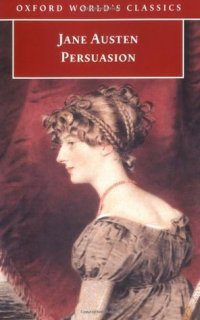 Persuasion. She is interesting, but perhaps not original (I don’t know enough about Austen scholarship to say) on the theme of fossils and old certainties giving way to Darwinism, conjecturing Austen may have come across the child Mary Anning on the beach at Lyme Regis. She’s amusing about the idea of marrying to regain an ancestral home and on snobbery – but Austen does that all so well herself with her portrait of Sir Walter Elliot, it barely needs repeating. I felt her writing about Persuasion was like history in the novel: “… disrupted, random, chaotic…You can’t escape the tide of history; you can’t stay firm against that kind of pressure; you have to give way and let yourself be carried, if you want any hope of surviving.” (p 289).
Persuasion. She is interesting, but perhaps not original (I don’t know enough about Austen scholarship to say) on the theme of fossils and old certainties giving way to Darwinism, conjecturing Austen may have come across the child Mary Anning on the beach at Lyme Regis. She’s amusing about the idea of marrying to regain an ancestral home and on snobbery – but Austen does that all so well herself with her portrait of Sir Walter Elliot, it barely needs repeating. I felt her writing about Persuasion was like history in the novel: “… disrupted, random, chaotic…You can’t escape the tide of history; you can’t stay firm against that kind of pressure; you have to give way and let yourself be carried, if you want any hope of surviving.” (p 289).
I may give the impression, wrongly, that Kelly discusses only the six principal novels. But she does so in the context of Jane Austen’s letters, of imagined scenes from her life, historical events, her comic verse and fragments of writing, memoirs by the Austen family, contemporary novels and polemic, and the scholarship of others. There are snippets of social history; daring, forthright opinions, and there’s quite a lot of “perhaps” along with a few “undoubtedly”s. It’ s a long time since I’ve been fascinated enough to review a secondary source. I may even go and study literature again.
©Jessica Norrie 2017








I studied at Sussex too! (American Literature, 1996-2000 and then a PhD until 2003). I was a mature student as I had studied Medicine back in Spain. I loved it there. Times have changed indeed. I’ve been reading more of an about Austen recently but I’m far from an authority. Thanks very much, Jessica.
LikeLiked by 1 person
Wonderful place Sussex, I wonder if any of my tutors were still there. Thanks for your comment Olga.
LikeLike
Thank you Sally. I went back to my academic roots for this one – and do you know it really appealed! Should have taken that path perhaps…
LikeLike
Excellent post! Thank you!
LikeLiked by 1 person
Thank you!
LikeLike